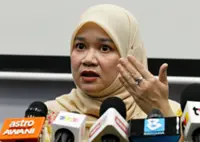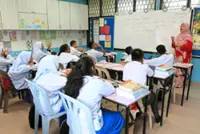KUALA LUMPUR: Educators and parent groups say the reintroduction of major examinations such as the UPSR and PT3 should only be considered if the assessments are of substance and quality.
They cautioned against any “quick fix” solutions and over-reliance on such assessments that may not appropriately evaluate students’ knowledge and competencies.
Parent Action Group for Education chairman Datin Noor Azimah Abdul Rahim said the reintroduction could lead to more drawbacks, with a greater focus on exams rather than holistic education.
“There could be a narrow emphasis on completing the syllabus rather than truly educating students, encouraging a culture of merely chasing after good grades.
“It will likely benefit only those who are academically inclined while neglecting talented students who may not excel in traditional academic measures.
“It also clashes with the push for technical and vocational education and training,” she said.
Noor Azimah said the existing school-based assessments are adequate but stressed the need to review their parameters and effectiveness regularly to ensure quality.
“The Education Ministry has since introduced the Academic Session Final Test (UASA) for Year Four to Year Six and Form One to Form Three to complement classroom-based and school-based assessments,” she said.
However, she suggested a “better variation” to have the UASA only for Year 6 and Form 3, without the need to make it as intensive as the UPSR and PT3 exams.
Introduced in 2022, UASA is a test given at the end of the academic year to strengthen classroom-based assessment and school-based assessment.
Noor Azimah also cautioned the government against hastily announcing education reforms without proper engagement and public consultation, drawing parallels to past decisions such as making the history subject a mandatory pass for the SPM exam and abolishing the Dual Language Programme in all MRSM schools, except for the 12 offering the International General Certificate of Secondary Education route.
“Parents cringe when politicians want to reform the education system. “Engage stakeholders such as parents before announcing any reform. “Collect suggestions and make public who and in which capacity in the Education Ministry is studying these,” she added.
Educationist Datuk Dr Chiam Heng Keng said appropriate assessments, provided they are of quality, are important in gauging students’ knowledge and competencies.
“Examinations, which are appropriate assessments of the student’s knowledge and competencies, are needed.“Otherwise, students and the authority have no idea of their standing. (Examinations) could give them a good sense of achievement or a need for progress,” she said.
Chiam cautioned against a simplistic approach of reinstating the exams, saying that the focus should be on ensuring that the assessments are of a high standard and that they will truly reflect students’ abilities.
“Any immediate action without proper study, critical analysis, research into the systems of other countries and scientific assessments of the implementation will worsen the situation,” she said.
The founding president of the Early Childhood Care and Education Council said that any reforms must be grounded in a comprehensive and scientific review of the current education system at all levels, as Malaysia has a history of reacting to situations without critically analysing the cause to find solutions.
Earlier on Monday, Education Minister Fadhlina Sidek said the Cabinet may review the national education policy on scrapped PT3 (Form Three) and UPSR (Year Six) examinations as part of reform.
This came after Deputy Prime Minister Datuk Seri Ahmad Zahid Hamidi said the UPSR and PT3 exams had served as benchmarks to gauge students’ education levels before SPM and that the current lack of major exams for Year Six and Form Three students needs to be revamped.
He had previously discussed with the Education Ministry the case of 10,177 students who did not sit for SPM last year due to 3R – reading, writing and arithmetic – issues in learning.
Fadhlina also said the ministry is implementing an intervention programme after identifying 122,000 Year 1 students who have yet to master the 3Rs.





